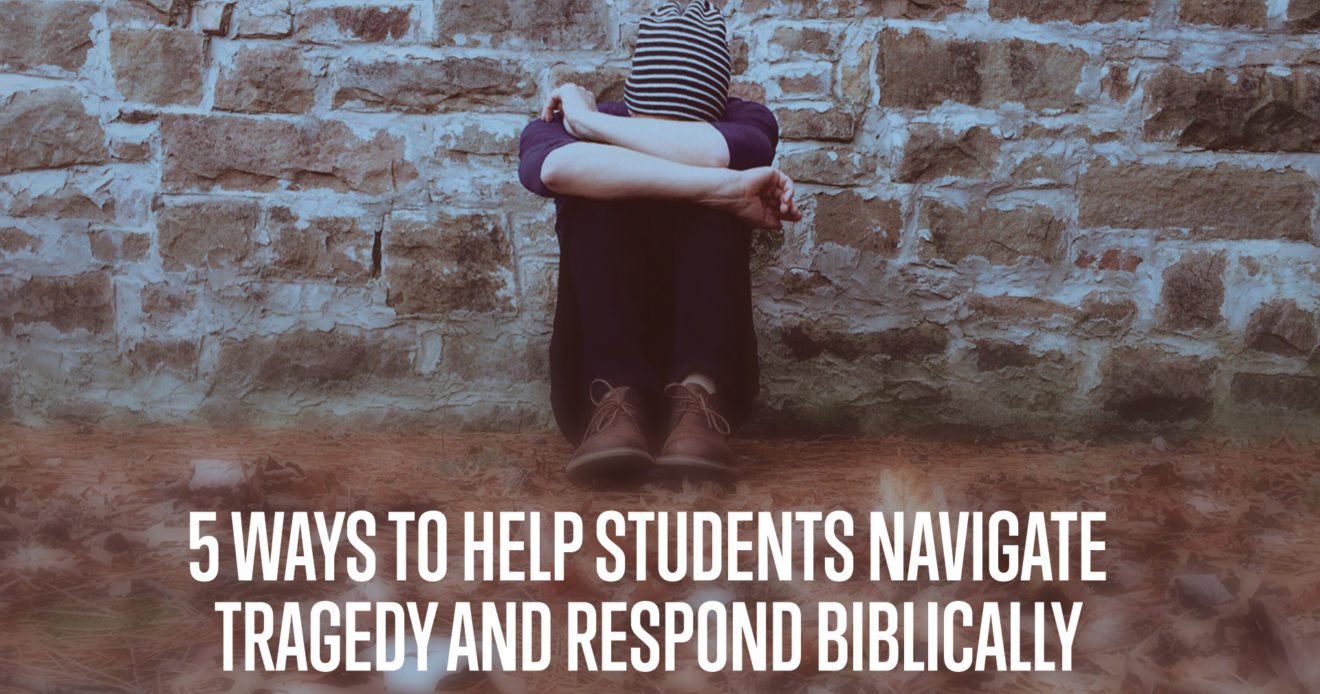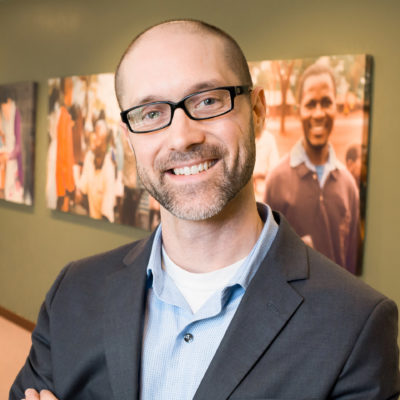
5 Ways to Help Students Navigate Tragedy and Respond Biblically
Living In A World With Terrorism
I was painting my house when my phone buzzed in my pocket. I glanced at it thinking my wife needed something. Only to find out that it happened. Again. I sat on the steps, sighed, and prayed. I prayed in frustration, prayed for the families, prayed for Ariana Grande. I prayed that somehow, someway Jesus would be made known amidst such evil.
I had heard that some had died. Then I heard 22 dead with several more injured.
Then I heard some were children.
But as students make their way into church this week, on the surface it may feel like business as usual. Should it be? After all this was all the way in Manchester, England. And event security in the U.S. is arguably the best there is. But this was a concert—one with families, students, and children. This was a night meant for fun. And it ended in death and terror—so maybe not entirely business as usual. As a youth leader you have to decide on what you ought to talk about and how much to talk about. But as you make those decisions this week, it is critical that you are prepared and equipped to help students navigate the pain, fear, confusion, and even dismissal that naturally comes with such a horrible act. What should you be looking for? How should you handle it?
Look for those who blow it off or seemed to be completely uninformed.
It may seem like some of your students either don’t care or don’t know. Whatever you do, don’t take this as permission to carry on with business as usual. Humor and disinterest are often a coping mechanism. For some it is easier to ignore than confront. This of course doesn’t mean force the issue either; but you know your students. This can be a good time to redirect students to think biblically
Some may have an overwhelming sense of fear.
The bombing in Manchester was a tragedy that all of us can relate to. For many, attending concerts is a regular part of life. Does this mean I should stop going to concerts? Do I now have to constantly look over my shoulder every time I am in public? How can I attend a concert and even enjoy it? Parents are fearful too. This can create conflict and even resentment between students and parents. You are in a great position to help families tread those waters.
Questioning why God would allow such evil and suffering.
This remains the single biggest questions students ask about God. An event like this is likely going to bring this question to the surface. Take it head on. Talk about the character of God, the existence of evil, this fallen world, and redemption in Christ. Don’t feel that you need all the answers. You just need to listen and respond with empathy.
Invite students to share their emotions.
Some students just need to vent or process their emotions in ways we are unfamiliar with. Don’t dismiss their emotions. Keep their eyes focused on Christ, and their emotions will follow. If they need to process further and in more depth, set some time aside with them. Yes, you have a group to run for the evening and a lot of students to manage, but don’t ignore.
Allow time and space for questions.
As always allow the students to express freely and ask any question; and be honest with your answers. Let the students direct the conversation. Don’t force it. They will ask when ready. Your job is to be ready when they are.
We live in a broken world, with some incredible evil. But how your students respond will speak volumes for the gospel. How we, as Christians, respond speaks directly to the power of the resurrection in us and the hope we have. The church is the hope of the world. Help students live out that mission.
Yet as I type this, I am looking out into my backyard. The rain has stopped, the sun is setting, and a near perfect rainbow is stretching across the sky, reminding me that God has promised. He has promised that these terrible acts of evil will be no more. He has promised that despite the presence of fear, perfect love casts out fear. He has promised that no matter the threat that stands before us, Christ still reigns as King.
Steve Kozak
Executive Director of AwanaYM
Steve currently serves as the Executive Director of AwanaYM. Previously, Steve spent over a decade teaching high school theology and apologetics from Detroit to LA. Steve holds a Masters degree in Theology from Moody Theological Seminary and a Masters in Christian Apologetics from Biola University. Steve is also an adjunct professor at Trinity International University. He speaks and writes on youth ministry, youth culture and apologetics. He resides in Chicago, IL with his wife and four children.FollowSteve Kozak on Twitter: stevenmkozak
Comments
Get the AwanaYM Update
Receive youth ministry resources in your inbox. Subscribe today!
